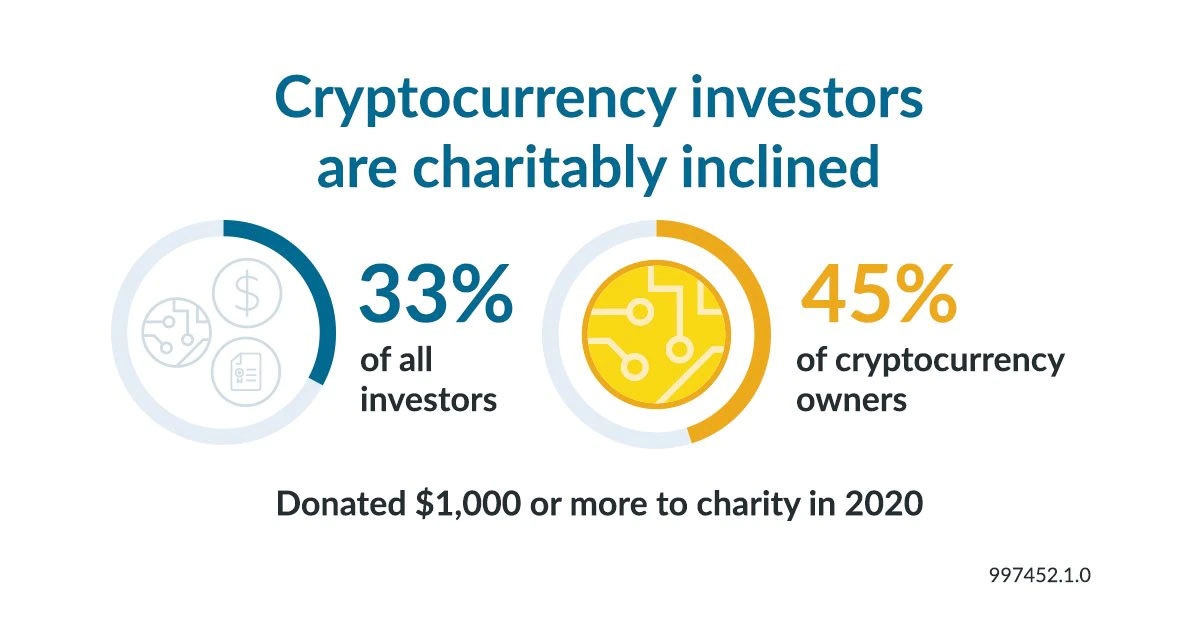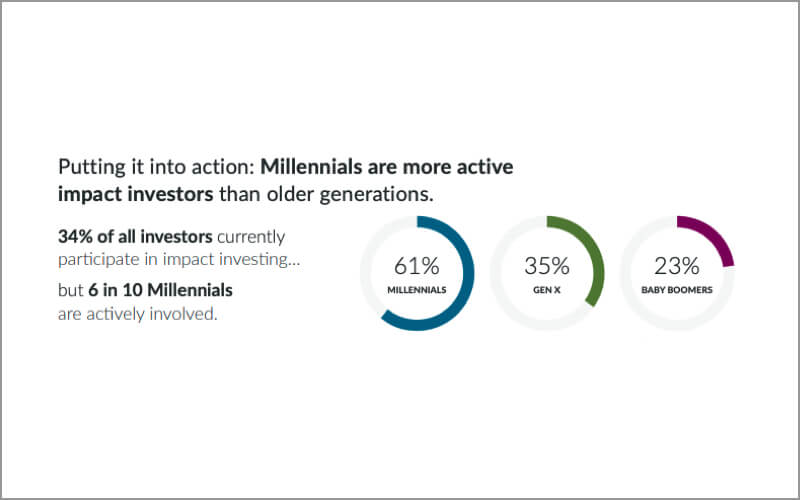Our client Fidelity Charitable recently published results from a study we conducted on cryptocurrency and philanthropy. Despite its volatility, cryptocurrency has become both a financial phenomenon and an increasing part of every day transactions. We looked at what this means for the philanthropic sector.
Key takeaways include the following:
- One in three crypto investors aren’t aware that selling digital assets is a taxable event. Furthermore, though cryptocurrency investors are disproportionately charitable (see graphic above), the tax-savvy strategy of donating digital assets to charity is not well-known.
- A third of cryptocurrency investors have donated some of their cryptocurrency to charity—and their motivations are both head-based and heart-based.
- However, many cryptocurrency donors faced difficulties with the experience of donating their assets to charity. Half of investors who donated digital assets say the charity required a larger amount than they wanted to give. Forty-six percent say that it was difficult to find charities that accept cryptocurrency, and 44 percent say that it was a cumbersome process.
The study overview on Fidelity Charitable’s website looks at important implications for cryptocurrency investors, financial advisors, and the nonprofit community. A comprehensive report is available as a downloadable PDF here.
This is the fourth study we’ve conducted on giving attitudes and behaviors for Fidelity Charitable this year. The first, on the future of philanthropy, was published in the spring. The second looked at women and giving and was published in the summer. The third assessed COVID’s impact on giving and was released earlier this fall.



